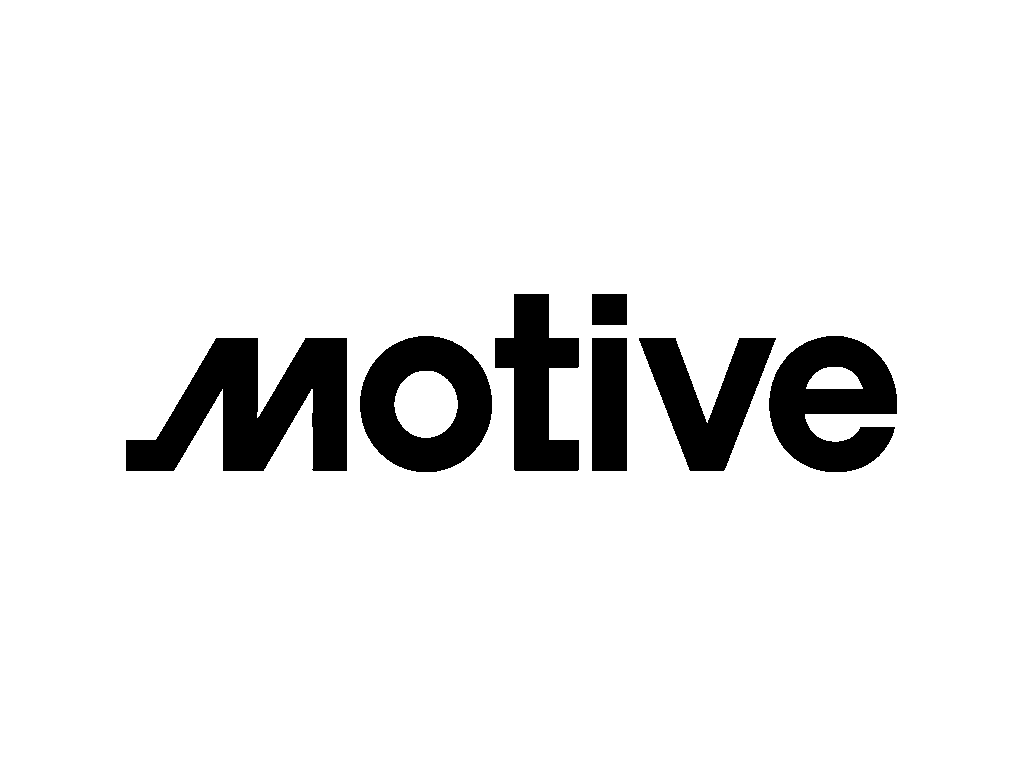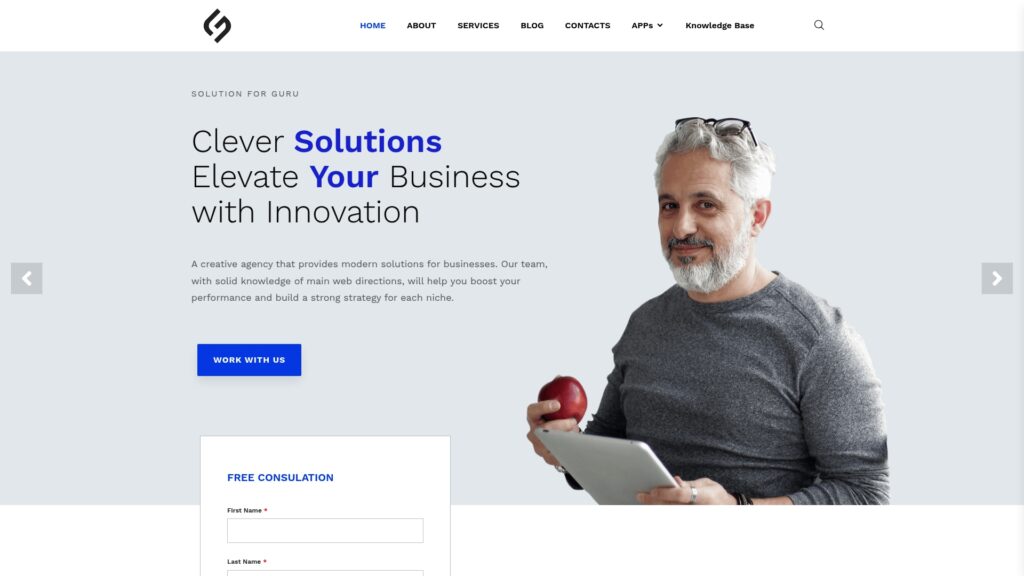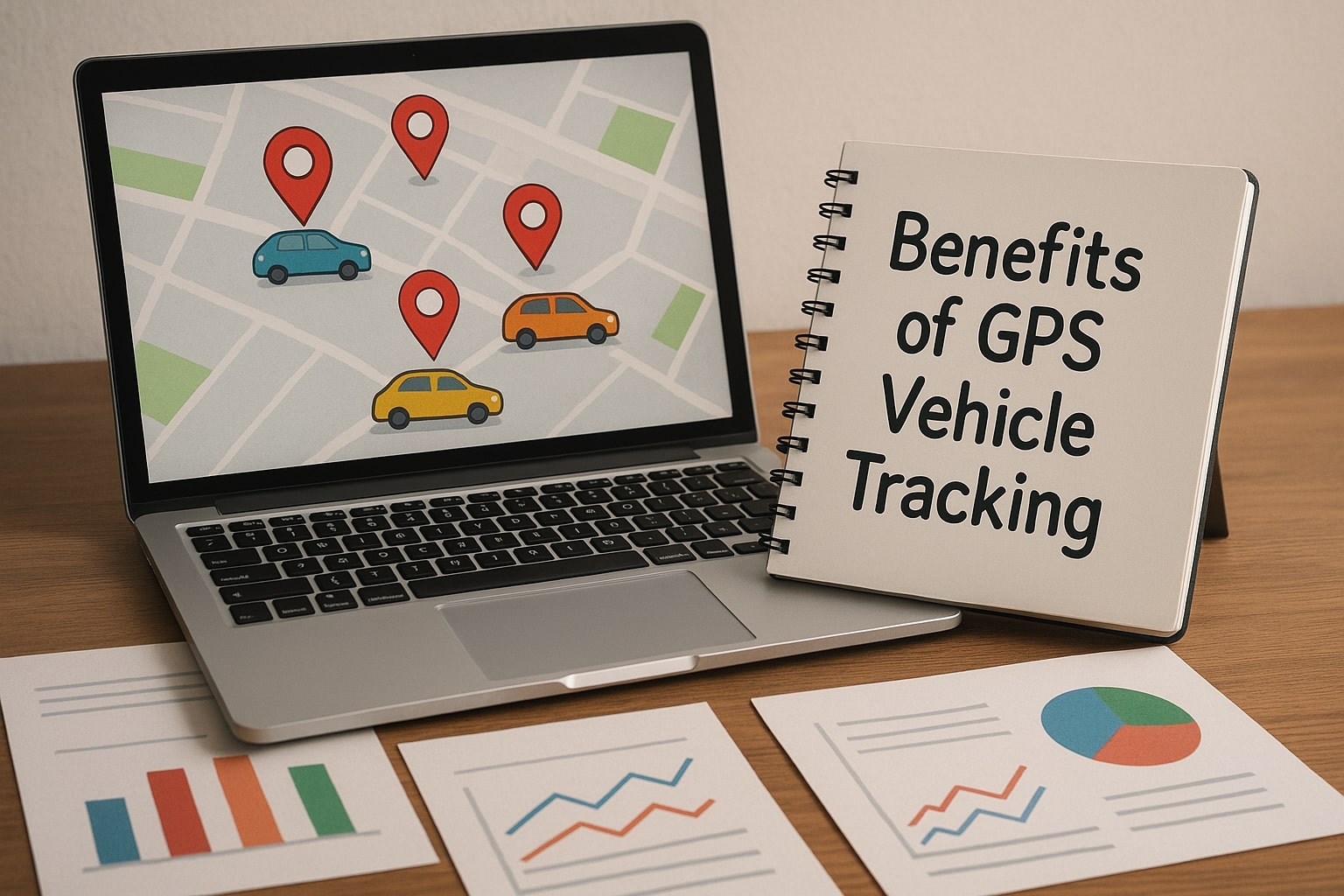Business Vehicle Tracking: Boosting Efficiency and Accountability on the Road

In today’s competitive business landscape, companies operating vehicle fleets face mounting pressure to optimize operations, reduce costs, and ensure accountability. Consequently, vehicle tracking technology has emerged as an indispensable solution for businesses seeking to transform their fleet management strategies. Furthermore, this comprehensive guide explores how modern tracking systems revolutionize transportation operations while delivering measurable returns on investment.
Table of Contents
- Quick Summary
- What is Vehicle Tracking
- Leading Vehicle Tracking Services
- What are the core benefits of online vehicle tracking?
- Implementation Strategies and Best Practices
- Cost Analysis and ROI Considerations
- Technology Integration and Future Trends
- Industry-Specific Applications
- Conclusions
- Frequently Asked Questions
- Benefits of Cooperation with Solution4Guru
Quick Summary
Business vehicle tracking systems represent a transformative technology that enables companies to monitor, manage, and optimize their fleet operations in real-time. Moreover, these sophisticated platforms combine GPS technology, telematics, and advanced analytics to provide comprehensive insights into vehicle performance, driver behavior, and operational efficiency. Additionally, leading solutions such as Azuga, Motive, Samsara, and Verizon Connect offer specialized features tailored to diverse industry requirements, ultimately helping businesses reduce costs, improve safety, and enhance customer satisfaction while maintaining regulatory compliance.
What is Vehicle Tracking
Vehicle tracking technology utilizes Global Positioning System (GPS) satellites, cellular networks, and advanced telematics to monitor the real-time location and status of vehicles within a fleet. Subsequently, this technology captures extensive data including vehicle speed, engine performance, fuel consumption, driver behavior patterns, and maintenance requirements. Furthermore, modern tracking systems integrate seamlessly with fleet management software platforms, providing comprehensive dashboards and analytics tools that transform raw data into actionable business insights.
The fundamental components of vehicle tracking systems include GPS receivers installed in vehicles, cellular or satellite communication modules, and cloud-based software platforms that process and display information. Additionally, these systems often incorporate sensors that monitor various vehicle parameters such as engine temperature, brake usage, acceleration patterns, and door status. Consequently, fleet managers gain unprecedented visibility into their operations, enabling data-driven decision-making that significantly improves efficiency and reduces operational costs.
Leading Vehicle Tracking Services
Azuga: Comprehensive Fleet Intelligence

Azuga stands out as a leading vehicle tracking solution that specializes in providing actionable fleet intelligence through advanced analytics and user-friendly interfaces. Moreover, this platform excels in driver behavior monitoring, offering detailed scorecards that help fleet managers identify training opportunities and reward safe driving practices. Additionally, Azuga’s robust reporting capabilities enable businesses to track key performance indicators, monitor compliance requirements, and optimize route planning for maximum efficiency.
The platform’s strength lies in its ability to integrate seamlessly with existing business systems while providing scalable solutions for fleets of all sizes. Furthermore, Azuga’s mobile applications ensure that both drivers and managers have access to critical information regardless of their location, thereby enhancing communication and operational coordination throughout the organization.
Motive: AI-Powered Fleet Management

Motive leverages artificial intelligence and machine learning algorithms to deliver sophisticated fleet management capabilities that go beyond traditional tracking solutions. Consequently, this platform provides predictive analytics that help fleet managers anticipate maintenance needs, optimize fuel consumption, and prevent costly breakdowns before they occur. Additionally, Motive’s advanced safety features include real-time coaching for drivers, automated compliance monitoring, and comprehensive risk assessment tools.
The platform’s integrated approach combines vehicle tracking with electronic logging devices (ELD), hours of service monitoring, and fuel management systems. Therefore, businesses can manage their entire fleet operation through a single, cohesive platform that streamlines administrative tasks while improving operational efficiency and regulatory compliance.
Samsara: Connected Operations Platform

Samsara offers a comprehensive connected operations platform that extends beyond basic vehicle tracking to include equipment monitoring, safety management, and operational intelligence. Moreover, this solution provides real-time visibility into fleet operations through advanced dashboard cameras, environmental sensors, and IoT connectivity. Additionally, Samsara’s platform excels in providing actionable insights through customizable reports and automated alerts that help fleet managers respond quickly to operational challenges.
The platform’s strength lies in its ability to provide a holistic view of fleet operations, combining vehicle data with driver performance metrics, maintenance schedules, and customer service indicators. Furthermore, Samsara’s open API architecture enables seamless integration with existing business systems, ensuring that vehicle tracking data enhances rather than disrupts established workflows.
Verizon Connect: Enterprise-Grade Solutions

Verizon Connect delivers enterprise-grade vehicle tracking solutions backed by one of the world’s most reliable cellular networks, ensuring consistent connectivity and data transmission regardless of geographic location. Consequently, this platform provides robust fleet management capabilities including advanced route optimization, comprehensive reporting tools, and integration with popular business applications. Additionally, Verizon Connect’s solutions are particularly well-suited for large enterprises requiring scalable platforms that can accommodate complex operational requirements.
The platform’s comprehensive approach includes field service management, asset tracking, and mobile workforce solutions that extend vehicle tracking capabilities to encompass entire service operations. Therefore, businesses can achieve greater operational efficiency by coordinating vehicle movements with customer appointments, inventory management, and technician scheduling through a unified platform.
What are the core benefits of online vehicle tracking?
Enhanced Operational Efficiency
Vehicle tracking systems dramatically improve operational efficiency by providing real-time visibility into fleet activities and enabling proactive management decisions. Moreover, these systems allow fleet managers to optimize routes based on current traffic conditions, vehicle availability, and customer requirements, thereby reducing travel time and fuel consumption. Additionally, automated dispatching capabilities ensure that the most appropriate vehicle and driver are assigned to each job, maximizing productivity while minimizing operational costs.
The following table illustrates the typical efficiency improvements observed with vehicle tracking implementation:
| Efficiency Metric | Average Improvement | Impact Area |
|---|---|---|
| Route Optimization | 15-20% reduction in travel time | Fuel costs, customer service |
| Vehicle Utilization | 25-30% improvement | Asset ROI, operational capacity |
| Dispatch Efficiency | 20-25% faster response times | Customer satisfaction, productivity |
| Administrative Tasks | 40-50% reduction in paperwork | Labor costs, accuracy |
| Maintenance Scheduling | 30-35% improvement in planning | Vehicle uptime, repair costs |
Improved Driver Accountability and Safety
Vehicle tracking technology significantly enhances driver accountability by providing objective data about driving behaviors, route compliance, and time management. Furthermore, these systems enable fleet managers to identify unsafe driving practices such as excessive speeding, harsh braking, and unauthorized vehicle use, creating opportunities for targeted training and coaching programs. Additionally, many tracking systems include driver scorecards that gamify safe driving practices, encouraging positive behavior changes through recognition and incentive programs.
Safety improvements extend beyond individual driver behavior to encompass overall fleet risk management. Consequently, tracking systems can automatically alert managers to potential safety concerns, enable rapid response to emergencies, and provide valuable data for insurance claims and accident investigations. Moreover, the presence of tracking technology often serves as a deterrent to risky driving behaviors, creating a culture of safety throughout the organization.
Comprehensive Cost Reduction
Vehicle tracking systems deliver substantial cost savings across multiple operational areas, making them one of the most effective investments in fleet management technology. Additionally, fuel cost reductions typically represent the most immediate and visible savings, achieved through route optimization, idle time reduction, and improved driving behaviors. Furthermore, maintenance cost savings result from proactive scheduling based on actual vehicle usage rather than arbitrary time intervals, preventing costly breakdowns and extending vehicle lifecycles.
The comprehensive cost reduction benefits include:
- Fuel Savings: 10-20% reduction through optimized routing and reduced idling
- Insurance Premiums: 5-15% discounts for fleets with tracking systems
- Maintenance Costs: 20-30% reduction through predictive maintenance
- Labor Efficiency: 15-25% improvement in driver productivity
- Administrative Costs: 30-40% reduction in manual tracking and reporting
Enhanced Customer Service and Satisfaction
Vehicle tracking technology enables businesses to provide superior customer service through accurate arrival time estimates, proactive communication about delays, and faster response to service requests. Moreover, real-time tracking capabilities allow customer service representatives to provide immediate updates on delivery status, reducing customer inquiries and improving overall satisfaction levels. Additionally, historical tracking data helps businesses analyze service patterns and identify opportunities for service improvements.
The ability to provide proof of service delivery through GPS timestamps and route histories enhances customer confidence and reduces disputes. Furthermore, tracking systems enable businesses to offer premium services such as time-window deliveries and real-time tracking portals that differentiate them from competitors while commanding higher service fees.
Implementation Strategies and Best Practices
Strategic Planning and Goal Setting
Successful vehicle tracking implementation begins with comprehensive strategic planning that aligns technology deployment with specific business objectives and measurable outcomes. Moreover, organizations must clearly define their goals, whether focused on cost reduction, safety improvement, compliance management, or customer service enhancement, to ensure that selected tracking solutions address their primary concerns. Additionally, establishing baseline metrics before implementation enables accurate measurement of return on investment and system effectiveness over time.
The planning process should include stakeholder engagement across all levels of the organization, from senior management to drivers, ensuring that everyone understands the benefits and expectations associated with the new technology. Furthermore, creating a detailed implementation timeline with specific milestones and success metrics helps maintain project momentum while providing accountability checkpoints throughout the deployment process.
Technology Selection and Vendor Evaluation
Choosing the appropriate vehicle tracking solution requires careful evaluation of available options against specific operational requirements, budget constraints, and long-term scalability needs. Consequently, organizations should develop comprehensive selection criteria that include technical capabilities, integration requirements, vendor support quality, and total cost of ownership considerations. Additionally, conducting pilot programs with leading candidates provides valuable insights into system performance and user acceptance before making final commitments.
Key evaluation criteria should include:
- Technical Capabilities: GPS accuracy, real-time reporting, mobile access
- Integration Options: Compatibility with existing systems and software
- Scalability: Ability to accommodate fleet growth and changing requirements
- Support Services: Training, implementation assistance, ongoing technical support
- Cost Structure: Hardware costs, monthly fees, setup charges, contract terms
Change Management and Employee Engagement
Effective change management represents a critical success factor in vehicle tracking implementation, as employee acceptance and adoption directly impact system effectiveness and return on investment. Moreover, organizations must address employee concerns about privacy, job security, and workflow changes through transparent communication and comprehensive training programs. Additionally, involving drivers and dispatchers in the selection and implementation process creates ownership and reduces resistance to new technology.
Training programs should encompass both technical aspects of using the tracking system and behavioral changes required to maximize benefits. Furthermore, establishing clear policies regarding system use, privacy protection, and performance expectations helps create a framework for successful adoption while addressing employee concerns about monitoring and accountability.
Performance Monitoring and Optimization
Continuous performance monitoring and system optimization ensure that vehicle tracking investments deliver sustained value and adapt to changing business requirements over time. Additionally, regular analysis of tracking data reveals trends and patterns that inform operational improvements and strategic decision-making. Moreover, ongoing optimization activities should include route refinement, driver coaching programs, and system configuration adjustments based on actual usage patterns and business feedback.
Establishing regular review cycles enables organizations to assess system performance against initial objectives while identifying opportunities for enhancement and expansion. Furthermore, staying current with software updates and new feature releases ensures that tracking systems continue to provide maximum value as technology evolves and business needs change.
Cost Analysis and ROI Considerations

Initial Investment Requirements
Vehicle tracking system implementation requires careful consideration of both upfront costs and ongoing operational expenses to ensure accurate budget planning and realistic ROI projections. Moreover, initial costs typically include hardware installation, software licensing, training programs, and potential integration with existing systems. Additionally, organizations must factor in the time and resources required for system deployment, employee training, and workflow adjustments during the transition period.
The following breakdown illustrates typical implementation costs:
| Cost Category | Small Fleet (5-25 vehicles) | Medium Fleet (26-100 vehicles) | Large Fleet (100+ vehicles) |
|---|---|---|---|
| Hardware/Installation | $150-300 per vehicle | $125-250 per vehicle | $100-200 per vehicle |
| Software Licensing | $25-50 per vehicle/month | $20-40 per vehicle/month | $15-35 per vehicle/month |
| Training & Setup | $2,000-5,000 total | $5,000-15,000 total | $15,000-50,000 total |
| Integration Costs | $1,000-3,000 | $3,000-10,000 | $10,000-25,000 |
Ongoing Operational Costs
Monthly operational costs for vehicle tracking systems vary based on the selected platform, feature requirements, and service level agreements, requiring careful evaluation to ensure long-term affordability and value. Furthermore, these recurring expenses typically include software subscriptions, cellular data plans, technical support services, and potential system maintenance or upgrade costs. Additionally, organizations should budget for ongoing training needs as staff turnover occurs and system capabilities expand over time.
Hidden costs may include data overage charges for high-usage fleets, premium support services for mission-critical operations, and integration maintenance as business systems evolve. Consequently, establishing comprehensive service level agreements with vendors helps prevent unexpected charges while ensuring consistent system performance and support quality.
Return on Investment Calculations
Calculating accurate ROI for vehicle tracking systems requires comprehensive analysis of both hard cost savings and soft benefits that may be more difficult to quantify but equally valuable. Moreover, hard savings typically include fuel cost reductions, maintenance savings, insurance discounts, and labor efficiency improvements that can be directly measured and attributed to tracking system implementation. Additionally, soft benefits such as improved customer satisfaction, enhanced safety records, and better compliance management contribute significantly to overall value but require more sophisticated measurement approaches.
Most organizations experience positive ROI within 6-18 months of implementation, with annual returns frequently exceeding 200-300% of initial investment costs. Furthermore, ROI tends to improve over time as organizations become more sophisticated in utilizing tracking data and optimizing their operations based on system insights and recommendations.
Long-term Value Proposition
The long-term value of vehicle tracking systems extends far beyond immediate cost savings to include strategic advantages that enhance competitive positioning and business growth opportunities. Additionally, comprehensive tracking data enables organizations to make informed decisions about fleet expansion, service territory optimization, and customer service improvements that drive revenue growth. Moreover, the operational intelligence provided by tracking systems supports strategic planning initiatives and helps organizations adapt quickly to changing market conditions.
Data-driven insights from tracking systems also support continuous improvement initiatives that compound savings and efficiency gains over time. Furthermore, the ability to provide detailed performance metrics and service documentation enhances customer relationships and enables premium pricing for superior service levels, creating sustainable competitive advantages in the marketplace.
Technology Integration and Future Trends
Integration with Business Systems
Modern vehicle tracking solutions offer extensive integration capabilities that enable seamless data flow between fleet management systems and other critical business applications such as customer relationship management (CRM), enterprise resource planning (ERP), and accounting software. Consequently, this integration eliminates duplicate data entry, improves accuracy, and provides comprehensive business intelligence that spans multiple operational areas. Additionally, API-based integrations ensure that tracking data enhances existing workflows rather than creating additional administrative burden.
Advanced integration capabilities also enable automated workflows that respond to tracking events with appropriate business actions, such as updating customer delivery notifications, triggering maintenance requests, or generating billing documentation. Furthermore, these automated processes reduce manual intervention while improving consistency and reducing the potential for human error in critical business operations.
Emerging Technologies and Innovations
The vehicle tracking industry continues to evolve rapidly with the integration of emerging technologies such as artificial intelligence, machine learning, and Internet of Things (IoT) sensors that promise to deliver even greater operational insights and automation capabilities. Moreover, AI-powered analytics can predict maintenance needs, optimize routes in real-time, and identify patterns that human analysis might miss. Additionally, advanced sensor technology enables monitoring of cargo conditions, vehicle security, and environmental factors that affect operational performance.
Future developments in vehicle tracking technology include:
- Predictive Analytics: AI-driven insights for maintenance and operational optimization
- Advanced Telematics: Enhanced sensor capabilities for comprehensive vehicle monitoring
- Autonomous Integration: Preparation for self-driving vehicle technology
- Blockchain Integration: Secure, transparent tracking for sensitive cargo
- 5G Connectivity: Faster, more reliable data transmission capabilities
Data Analytics and Business Intelligence
Vehicle tracking systems generate massive amounts of data that, when properly analyzed, provide unprecedented insights into operational performance and improvement opportunities. Furthermore, advanced analytics platforms can identify trends, predict future outcomes, and recommend specific actions that optimize fleet performance across multiple dimensions. Additionally, machine learning algorithms continuously improve their recommendations as they process more data, creating increasingly sophisticated business intelligence capabilities.
The evolution toward predictive analytics represents a significant advancement in fleet management, enabling proactive rather than reactive operational management. Consequently, organizations can prevent problems before they occur, optimize resource allocation based on predicted demand, and continuously improve their operations through data-driven decision-making processes.
Mobile Technology and User Experience
Mobile technology plays an increasingly important role in vehicle tracking systems, providing drivers, managers, and customers with real-time access to relevant information through intuitive smartphone applications. Moreover, modern mobile interfaces offer features such as electronic proof of delivery, digital forms, photo documentation, and real-time communication capabilities that streamline field operations. Additionally, mobile applications often include navigation assistance, job scheduling, and performance feedback that help drivers work more efficiently while maintaining high service standards.
The user experience design of mobile applications significantly impacts adoption rates and operational effectiveness, making intuitive interface design a critical factor in system selection. Furthermore, mobile applications that work reliably in areas with limited cellular coverage ensure that tracking systems remain functional across diverse operating environments and geographic regions.
Industry-Specific Applications

Transportation and Logistics
Transportation and logistics companies represent the largest users of vehicle tracking technology, utilizing these systems to optimize delivery routes, improve customer service, and reduce operational costs across their networks. Moreover, tracking systems enable real-time visibility into shipment status, allowing companies to provide accurate delivery estimates and proactive communication about delays or issues. Additionally, the ability to optimize routes based on current traffic conditions, vehicle capacity, and delivery priorities significantly improves operational efficiency while reducing fuel costs.
Advanced analytics capabilities help logistics companies identify patterns in delivery performance, customer preferences, and operational bottlenecks that inform strategic planning and service improvements. Furthermore, integration with warehouse management systems and customer portals creates seamless information flow that enhances the entire logistics chain from pickup to delivery.
Construction and Heavy Equipment
Construction companies utilize vehicle tracking systems to monitor both vehicles and heavy equipment, providing comprehensive visibility into asset utilization, project progress, and operational efficiency. Consequently, tracking technology helps construction managers optimize equipment allocation, reduce idle time, and improve project scheduling based on actual asset availability and location data. Additionally, theft prevention capabilities protect valuable equipment investments while reducing insurance costs and operational disruptions.
Specialized features for construction applications include engine hour tracking, maintenance scheduling based on usage patterns, and geofencing capabilities that alert managers when equipment leaves authorized job sites. Moreover, integration with project management systems enables comprehensive job costing and resource allocation optimization that improves profitability and project delivery performance.
Service and Maintenance Industries
Service and maintenance companies leverage vehicle tracking technology to improve response times, optimize technician scheduling, and enhance customer service through accurate arrival time estimates and real-time communication capabilities. Furthermore, tracking systems enable dynamic dispatching that assigns service calls to the most appropriate technician based on location, skills, and current workload. Additionally, historical tracking data helps companies analyze service patterns and identify opportunities for route optimization and territory management improvements.
Integration with customer management systems and mobile applications creates comprehensive service delivery platforms that support everything from initial customer contact through job completion and billing. Moreover, proof of service capabilities through GPS timestamps and electronic signatures reduce disputes while improving customer confidence and satisfaction levels.
Delivery and Distribution Services
Delivery and distribution services utilize vehicle tracking technology to provide superior customer service through real-time package tracking, accurate delivery windows, and proactive communication about delivery status. Additionally, tracking systems enable route optimization that reduces delivery times while maximizing the number of stops per route, significantly improving operational efficiency and customer satisfaction. Moreover, electronic proof of delivery capabilities reduce disputes and improve billing accuracy while providing customers with confirmation of successful deliveries.
Advanced features for delivery applications include customer notification systems, signature capture, photo documentation, and failed delivery management that streamline the entire delivery process. Furthermore, integration with e-commerce platforms and customer portals creates seamless tracking experiences that differentiate service providers in competitive markets.
Emergency and Public Safety Services
Emergency and public safety organizations utilize vehicle tracking technology to improve response times, optimize resource deployment, and ensure accountability in critical situations. Consequently, real-time tracking enables dispatchers to identify the closest available units and provide accurate arrival time estimates to emergency callers. Additionally, tracking systems provide valuable data for analyzing response patterns, identifying coverage gaps, and optimizing station locations and staffing levels.
Specialized features for emergency applications include priority routing, automatic vehicle location (AVL) integration with dispatch systems, and panic button capabilities that enhance officer safety and operational coordination. Moreover, comprehensive reporting capabilities support performance analysis and strategic planning initiatives that improve service delivery and community safety outcomes.
Conclusions
Vehicle tracking technology has fundamentally transformed fleet management by providing unprecedented visibility into operations, enabling data-driven decision-making, and delivering substantial returns on investment across diverse industry applications. Moreover, the comprehensive benefits of tracking systems extend far beyond basic location monitoring to encompass safety improvement, cost reduction, customer service enhancement, and regulatory compliance management. Additionally, leading solutions such as Azuga, Motive, Samsara, and Verizon Connect continue to innovate with advanced features that address evolving business requirements while maintaining user-friendly interfaces and reliable performance.
The strategic implementation of vehicle tracking systems requires careful planning, stakeholder engagement, and ongoing optimization to maximize value and ensure sustainable benefits. Furthermore, organizations that approach tracking implementation as a comprehensive business transformation initiative rather than simply a technology deployment achieve significantly better results and higher returns on investment. Consequently, businesses that embrace vehicle tracking technology position themselves for competitive advantages through improved operational efficiency, enhanced customer service, and better risk management capabilities.
As technology continues to evolve with artificial intelligence, predictive analytics, and advanced sensor capabilities, vehicle tracking systems will become even more valuable for organizations seeking to optimize their operations and maintain competitive positioning. Therefore, investing in modern tracking solutions represents not just an operational improvement but a strategic advantage that supports long-term business success and growth in increasingly competitive markets.
The partnership with experienced solution providers like Solution4Guru can significantly enhance the success of vehicle tracking implementations by providing expert guidance, comprehensive support services, and ongoing optimization assistance that ensures maximum return on investment and sustained operational improvements.
Frequently Asked Questions
Most organizations begin seeing measurable benefits from vehicle tracking systems within 30-90 days of implementation, with full return on investment typically achieved within 6-18 months. Initially, immediate benefits include reduced fuel costs through route optimization and decreased idle time, followed by longer-term savings from improved maintenance scheduling and enhanced driver accountability. Moreover, the actual timeline depends on fleet size, implementation approach, and the specific operational challenges being addressed, with larger fleets often experiencing faster ROI due to economies of scale.
Employee privacy concerns typically center around constant monitoring, personal time tracking, and potential misuse of location data, requiring transparent communication and clear policies to address these issues effectively. Additionally, organizations should establish written policies that specify when tracking is active (during work hours only), what data is collected, who has access to information, and how privacy is protected during breaks or personal use of company vehicles. Furthermore, involving employees in the implementation process and providing training on system benefits helps build trust while addressing concerns about job security and performance evaluation.
Benefits of Cooperation with Solution4Guru
Partnering with Solution for Guru delivers exceptional value through their specialized expertise in vehicle tracking solutions and comprehensive implementation support. Moreover, their experienced consultants provide unbiased vendor selection guidance, ensuring clients choose the most suitable tracking platform for their specific operational requirements and budget constraints. Additionally, Solution4Guru’s proven implementation methodology minimizes deployment risks while accelerating time-to-value through structured project management and change management support.

Furthermore, their ongoing optimization services help organizations continuously improve their tracking system utilization, identifying new opportunities for cost savings and operational efficiency gains. Consequently, clients benefit from reduced implementation costs, faster ROI achievement, and sustained long-term value from their vehicle tracking investments. Additionally, Solution for Guru‘s vendor-neutral approach ensures objective recommendations while their established relationships with leading providers like Azuga, Motive, Samsara, and Verizon Connect enable preferential pricing and enhanced support services. Therefore, organizations partnering with Solution4Guru achieve superior results while minimizing risks and maximizing returns on their fleet management technology investments.



